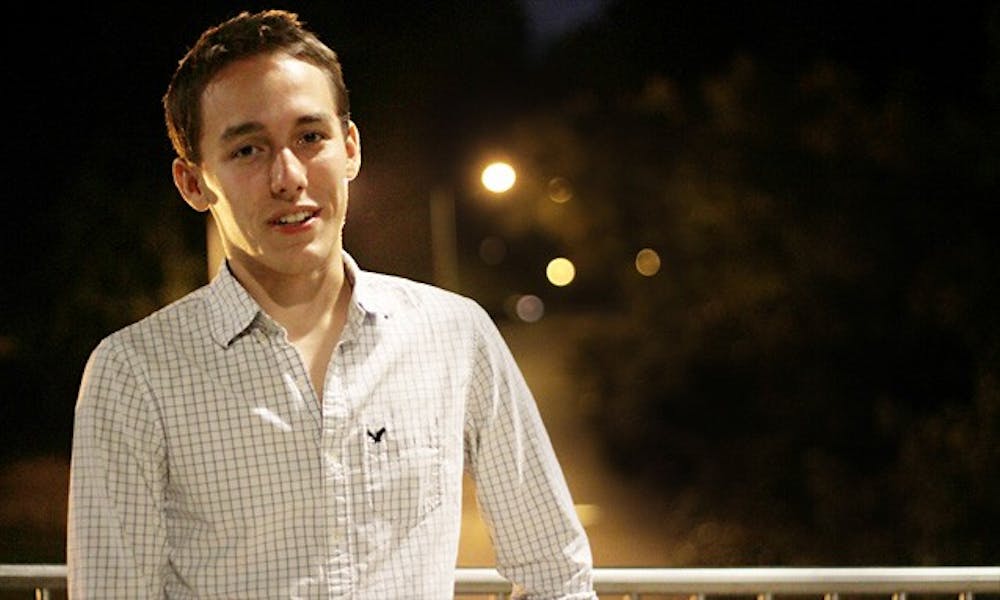During his freshman year, junior Michael Pruitt, a midshipman in the Naval Reserve Officer Training Corps, shared an intimate moment with his then-boyfriend at a Central Campus party.
The next day, a senior in the Naval ROTC drove him to his residence hall and offered him some blunt advice.
“She said, ‘Michael, you need to be more f—ing careful,’” Pruitt said.
Starting Tuesday, Pruitt’s need to be careful ceased to exist.
“Don’t ask, don’t tell,” a policy enacted in 1993 that prohibited lesbian, gay and bisexual soldiers from serving openly in the military, formally ended Tuesday. Its expiration followed a 60-day transition period stipulated by the legislation repealing the policy. President Barack Obama signed the repeal of DADT into law Dec. 22, 2010.
Although Pruitt said he is not permitted to comment on the policy changes specifically, he said the repeal has allowed him to be candid about his identity as a bisexual member of the military.
“Ever since I joined the Navy, I wanted to be that gay sailor, that new paradigm,” Pruitt said. “I am able to finally stand up and say this is who I want to be.”
The president, Secretary of Defense Leon Panetta and Adm. Mike Mullen, chairman of the Joint Chiefs of Staff, provided Congress with written certification of the U.S. military’s readiness for the military policy change July 22. Given DADT’s end, former members of the military who had been discharged due to revealing their sexuality can be reinstated.
“Patriotic Americans in uniform will no longer have to lie about who they are in order to serve the country they love,” Obama said in a release Tuesday. “Our armed forces will no longer lose the extraordinary skills and combat experience of so many gay and lesbian service members.”
Like the military’s branches, ROTC programs have incorporated educational training programs since last Spring to prepare members for the repeal, said Lieutenant Colonel Peter Oertel, commander of the Duke Air Force ROTC Program.
“We’ve trained and brought some education to all cadets,” Oertel said. “There was enough time for the active duty Air Force to train members based on the new policy—they’ve trained about 97 percent of them.”
The military will now include sexual orientation in their anti-discrimination policy, Oertel added. Any ROTC members who harass their openly gay peers will face serious consequences.
Capt. Douglas Wright, commanding officer of the Naval ROTC program at Duke, declined to comment on the repeal, as did Maj. Judith Cannon, assistant professor of military science and scholarship officer in the Army ROTC program.
Pruitt came out to his ROTC adviser Tuesday by notifying her of his interview with The Chronicle as a queer member of the military. She reacted by reviewing the military’s policy on media communication.
“There was always a tacit understanding—she would use gender-neutral pronouns,” Pruitt noted. “The first thing that she sees is my professional character, not my sexual orientation.”
Prior to the repeal, Pruitt said there was a fine line in terms of being open about his bisexuality on campus.
“I considered myself an ‘out’ person before I ever joined the military,” he said. “It’s so complicated with different spheres and circles of friends—I’m active at the LGBT center, but at the same time, I couldn’t walk down the Main [West Quadrangle] holding hands with my boyfriend.”
Despite spending more than two years hiding his sexuality and relationships, Pruitt said joining the military allowed him to move past stereotypes of the gay community.
“When we think of the gay community, there are certain images that come to mind, and they’re so wildly different than the actual people who make up the gay community,” he said. “The gay rights movement is never going to succeed as long as we associate all the glitter and interior design with the gay community.”
Other leaders in the gay community on campus have applauded the repeal as a major step forward.
“It’s wonderful to see that anyone who wants to join the military no longer has to worry about being outed or feel the necessity to hide who they are,” President of Blue Devils United Ari Bar-Mashiah, a senior, wrote in an email Monday. “At Duke, the biggest change is probably that anyone who identified as LGBT and wished to join the military no longer feels that the two are mutually exclusive.”
Get The Chronicle straight to your inbox
Signup for our weekly newsletter. Cancel at any time.

